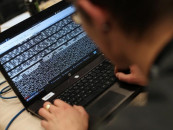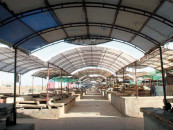Reviving educational integrity

One of the essences of education is creativity. Unfortunately, our current teaching syllabus and curriculum fall drastically short in providing practical education. Students from secondary to higher grades are primarily subjected to rote learning, where they cram subjects instead of truly understanding them. Our traditional teaching methods, relying on outdated content, stifle creativity and critical thinking.
Creative writing is crucial for developing novel thinking and analytical skills, yet it remains grossly neglected. Without encouraging creativity, we risk producing students who function more like robots than innovative thinkers. True learners, such as researchers, seek to accumulate knowledge for practical applications in life and society, embodying the spirit of genuine education.
Physical education is similarly overlooked, especially in private schools that lack the necessary resources. These schools often establish themselves in rented houses, which are typically two-story buildings, to save on expenditures. Despite charging extra tuition fees from parents, they fail to provide spacious buildings and playgrounds where students can engage in recreational activities as part of extracurricular programs. These private schools have become mere business enterprises at the expense of quality education, which is an injustice.
On the other hand, government-managed schools and colleges, despite having spacious classrooms and playgrounds on their premises, often fail to prioritise physical education due to a shortage of trained personnel and faculty.
While training organisations for teachers and staff exist, they often fail to deliver effective training sessions. Private schools make some effort in preparing lesson plans and conducting monthly assessments, but their teachers frequently lack proper subject training. The persistent use of traditional methods and red tape results in an education system focused on scoring high on exams rather than inculcating real learning and intellectual growth.
Education extends beyond classroom lessons; it shapes character, builds nations, and drives development. However, our nation faces a severe educational crisis, with a staggering number of out-of-school children, ranking second worst globally in education enrollment. The federal government has declared an education emergency, with 26.2 million out-of-school children and over 200,000 vacant teaching positions nationwide, according to Unicef.
The low literacy rate of 62.2% and the meager allocation of only 1.7% of GDP to the education sector highlight the dire need for urgent reform. Many students in public schools spend their post-school hours assisting their parents due to financial pressures, leading to high dropout rates. Technical education, which provides employable skills in a shorter timeframe than formal education, has also been neglected.
There is an apparent dearth of quality and meaningful education. The government must prioritise the education sector, ensuring that quarterly training sessions for teachers are conducted to upgrade their teaching methodologies. It is believed that education and proper teaching practices are essential tools for improving individuals’ standards of living.
Education is fundamental for individual well-being and responsible citizenship. From a young age, students are taught to embody the principles of our founding father, Quaid-e-Azam: Faith, Unity, and Discipline. These principles are vital for national progress, yet we fail to instill them effectively in our students.
Cheating during examinations is rampant, undermining the integrity of our educational system. This practice must be eradicated. Ensuring a cheating-free examination process is crucial for maintaining high education standards. Moral education is rooted in honesty, integrity, and morality. Properly qualified individuals, committed to these values, will better serve the nation.
True education is vital for the development of responsible and capable citizens. It is mandatory that we say no to cheating and support merit and transparency in examinations. By doing so, we can ensure that our educational system produces individuals who are well-qualified and dedicated to honesty and integrity, thus building a stronger future for our nation.














COMMENTS
Comments are moderated and generally will be posted if they are on-topic and not abusive.
For more information, please see our Comments FAQ